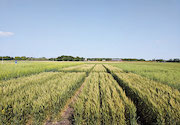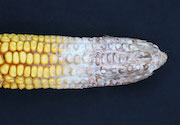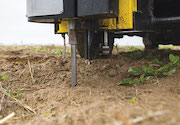| |
| |
 |
 |
| |
 |
|
@{mv_date_MMM d, yyyy}@ |
|
| |
The University of Guelph’s “Foundations in Agricultural Management” online certificate course will enable farmers, and especially younger producers, to brush up on their farm business management skills.
» Read more...
The fund will help address barriers to wider adoption, including up-front implementation costs, lack of risk protection, minimal or delayed ROI and limited availability of information and agronomic services.
» Read more...
AAFC biologist Dan MacEachern and his team, along with AAFC barley breeder Raja Khanal, help support the development of new wheat and barley crops that grow best in Atlantic Canada.
» Read more...
Census data indicate that trends identified in previous cycles, such as consolidation and aging of farm operators, continued in 2021. At the same time, the industry is adapting and modernizing.
» Read more...
Thirty-one years of data evaluated by the University of Guelph demonstrates the various effects of changing tillage practices and crop rotations in Ontario field crop production.
» Read more...
|
| |
 |
 |
| |
|
| |
 Rising input costs, climate change effects and challenging production environments have researchers and industry exploring new alternatives for improving soil health and yields. One alternative solution may be bio-inoculants: natural micro-organisms applied to soil or plants to improve soil health. Researchers in Manitoba have isolated some that support crop production, increase yields and enhance phosphorus usage.
» Learn more...
Rising input costs, climate change effects and challenging production environments have researchers and industry exploring new alternatives for improving soil health and yields. One alternative solution may be bio-inoculants: natural micro-organisms applied to soil or plants to improve soil health. Researchers in Manitoba have isolated some that support crop production, increase yields and enhance phosphorus usage.
» Learn more... |
| |
 University of Guelph researchers have discovered that corn silk has an amazingly diverse and dynamic microbial community. This microbiome includes bacteria that may be the plant’s vanguard in its fight against pathogens, pests and other problems that could impact kernel development. And some of those bacteria could become valuable tools to help corn growers battle such yield-robbers.
» Learn more...
University of Guelph researchers have discovered that corn silk has an amazingly diverse and dynamic microbial community. This microbiome includes bacteria that may be the plant’s vanguard in its fight against pathogens, pests and other problems that could impact kernel development. And some of those bacteria could become valuable tools to help corn growers battle such yield-robbers.
» Learn more... |
| |
 The drought of 2021 on the Prairies and in northern Ontario left a lingering hangover for 2022. Reduced crop growth and nutrient uptake during the growing season. Late season crop regrowth. Dry subsoil moisture going into the winter. Rigas Karamanos, a soil scientist Calgary, says the two main issues to consider are the effects of those dry conditions on crop growth and high fertilizer prices.
» Learn more...
The drought of 2021 on the Prairies and in northern Ontario left a lingering hangover for 2022. Reduced crop growth and nutrient uptake during the growing season. Late season crop regrowth. Dry subsoil moisture going into the winter. Rigas Karamanos, a soil scientist Calgary, says the two main issues to consider are the effects of those dry conditions on crop growth and high fertilizer prices.
» Learn more... |
| |
|
| |
OMAFRA field crop entomologist Tracey Baute discusses how Bt corn hybrids have worked to manage corn rootworm so far, how resistance has developed and what it means for corn growers going forward.
» Listen now...
|
|
AAFC’s Aaron Mills discusses how craft beer has informed his research, what he looks for in a malt barley variety for the East Coast, and the challenges of growing the crop in Maritime conditions.
» Listen now...
| | |
|
| |
Jan. 4-5, 2023
Ridgetown, Waterloo and Kemptville, Ont.
» Read more
|
| |
| |







